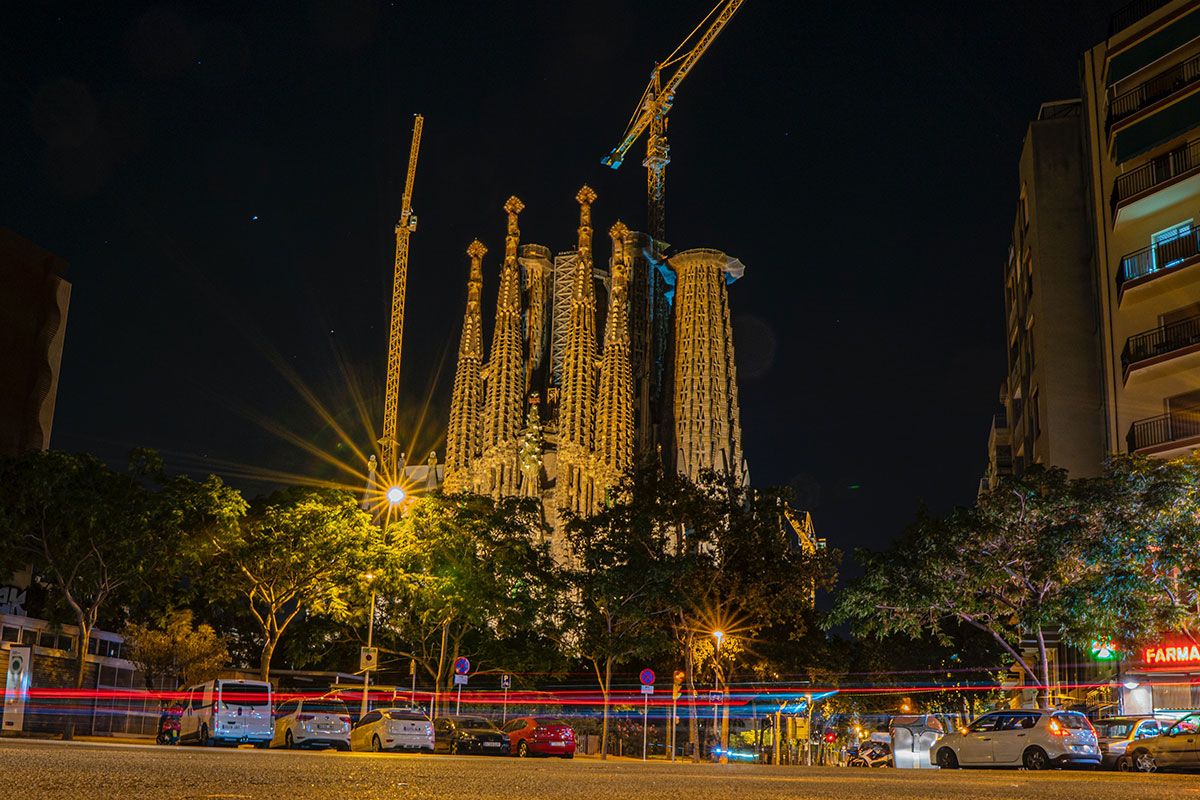The Sagrada Familia: A Masterpiece in Progress and Lessons for Timely Domestic Building Projects
The Sagrada Familia, one of the world’s most iconic architectural wonders, stands as an enduring testament to human ambition, artistic vision, and the complexities of construction. Since its inception in 1882 by Spanish architect Antoni Gaudi, this basilica has been under construction, and whilst there is excitement as the four towers have been recently crowned, it remains unfinished to this day with the central, and final tower to be completed. While it might be easy to marvel at its grandeur, the story of the Sagrada Familia offers profound insights for anyone embarking on domestic building projects. In this article, we will explore the fascinating history of the Sagrada Familia, the factors contributing to its prolonged construction timeline, and most importantly, the valuable lessons it provides to help homeowners ensure their own building projects progress efficiently.

The Saga of Sagrada Familia
Designed by the visionary architect Antoni Gaudí, the Sagrada Familia was initially envisioned as a simple neo-Gothic church. However, Gaudí’s creative genius transformed it into a complex and awe-inspiring masterpiece that defied traditional architectural norms. From the outset, the project was ambitious, with Gaudí aiming to complete it within a decade. Yet, as with many construction endeavours, challenges and delays soon became evident. So much so, that Gaudi is buried in the crypt of his own construction.
We’ve outlined below some of the major contributing factors to these delays:
-
Funding Challenges: One of the primary reasons for the prolonged construction timeline of the Sagrada Familia was financial instability. The project relied heavily on donations, and at times, funding was scarce. Construction had to be halted or significantly slowed down during periods of economic downturn or political upheaval.
-
Technical Complexities: Gaudí’s innovative architectural designs introduced unprecedented technical complexities. His use of novel construction techniques, intricate facades, and a forest of slender columns required meticulous planning and experimentation, often leading to unforeseen challenges that extended the construction timeline.
-
Historical Events: The construction of the Sagrada Familia was further delayed by historical events, including the Spanish Civil War, during which the building suffered damage and the loss of crucial construction plans. These external factors disrupted the project for years.
-
Adaptation and Commitment: Despite these challenges, the architects, engineers, and builders of the Sagrada Familia displayed unwavering commitment to the project. They adapted to changing circumstances, preserved Gaudí’s vision, and continued the construction even when faced with adversity.
Lessons for Timely Domestic Building Projects
While the Sagrada Familia’s journey is extraordinary, it offers valuable lessons for homeowners embarking on their own building projects. Here are essential takeaways to ensure your domestic construction doesn’t linger indefinitely:
-
Meticulous Planning: Begin with a comprehensive and well-thought-out plan. Clearly define your project’s scope, timeline, and budget. Consider contingencies for unexpected challenges.
-
Secure Financing: Ensure you have a stable financial plan in place. Budget for unforeseen expenses, and explore funding options that provide flexibility in case of economic fluctuations.
-
Professional Expertise: Collaborate with experienced architects and contractors who understand the complexities of your project. Their expertise can streamline the construction process.
-
Regular Communication: Maintain open and transparent communication with your project team. Discuss progress, challenges, and necessary adjustments regularly to keep the project on track.
-
Adaptability: Be prepared to adapt to changing circumstances. Unexpected issues may arise, so having a flexible approach to problem-solving is crucial.
-
Approvals and Regulations: Ensure all necessary planning permissions and regulatory approvals are in place before construction begins. Delays in obtaining these can significantly impact your project’s timeline.
-
Quality Control: Prioritise quality control throughout the construction process. Address issues promptly to prevent them from causing delays or escalating costs.
-
Project Management: Consider hiring a project manager to oversee the construction. Their expertise can help streamline processes and keep the project on schedule.
-
Regular Inspections: Conduct regular inspections to identify potential issues early. Timely corrections can prevent minor problems from turning into major delays.
-
Commitment and Persistence: Finally, remain committed to your project’s success. Persistence and dedication can help overcome challenges and keep the construction moving forward.
Contact Us
The Sagrada Familia’s ongoing construction journey serves as a powerful reminder of the complexities inherent in ambitious building projects. By studying its history and the lessons it offers, homeowners can approach their domestic building endeavors with a greater understanding of the factors that contribute to timely completion. With careful planning, adaptability, and a commitment to excellence, your own construction project can progress efficiently, allowing you to enjoy your dream home without unnecessary delays.
If you’re considering how you might tackle an extension, loft conversion or even a complete new-build, contact us now using the form below, or by calling 0800 148 8088 to see how we can help to avoid some of these pitfalls!